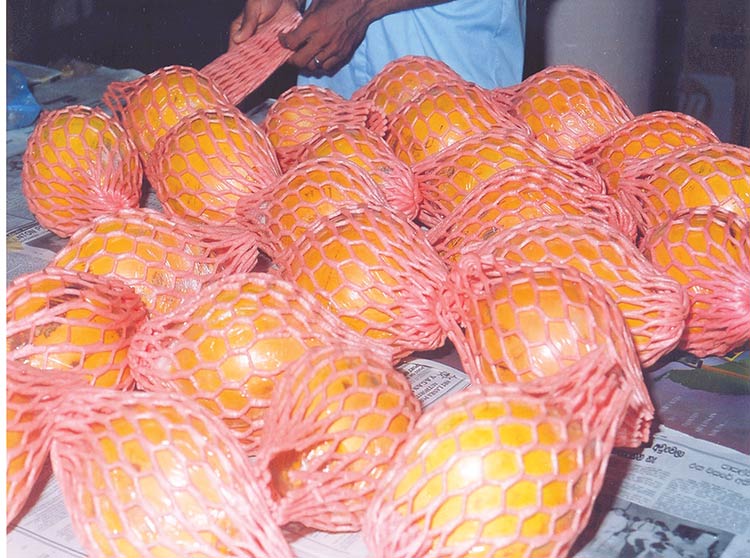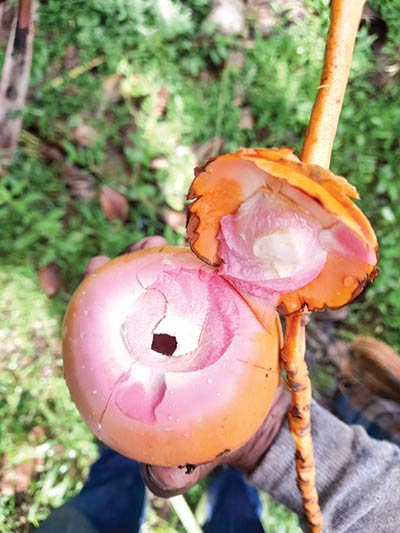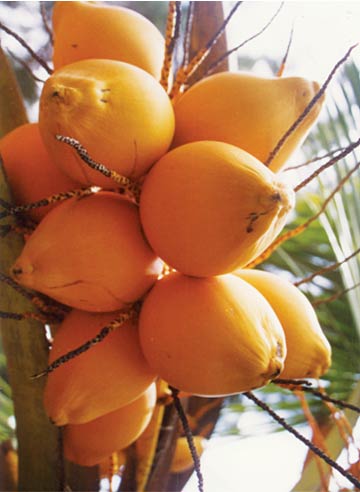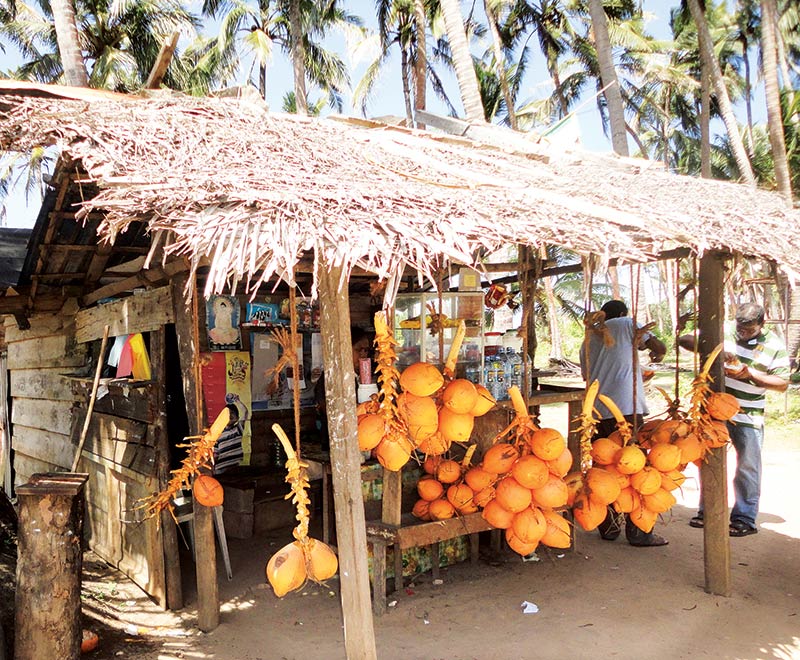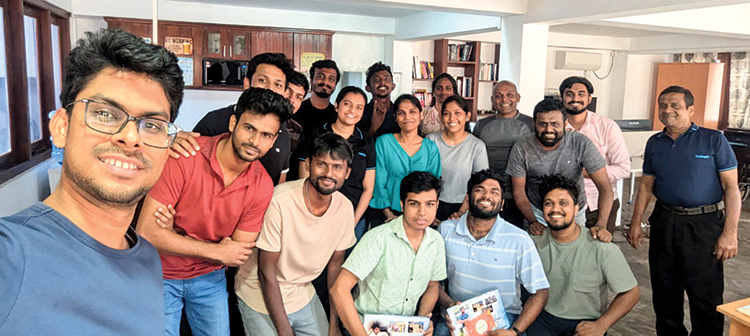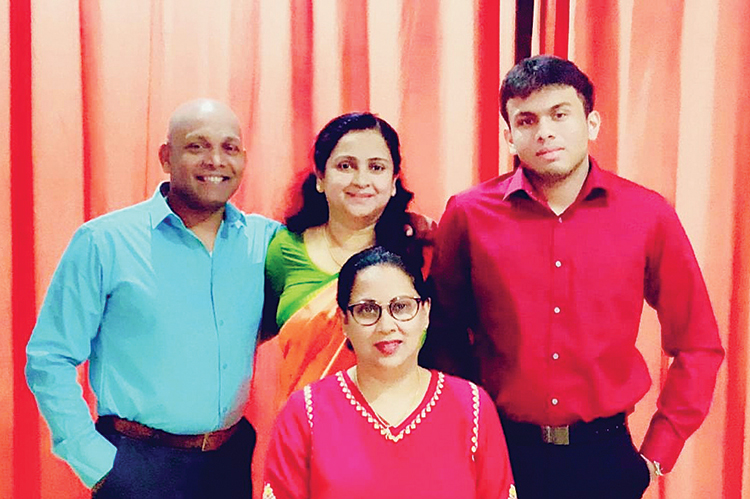Life style
King of coconuts heads for a golden future
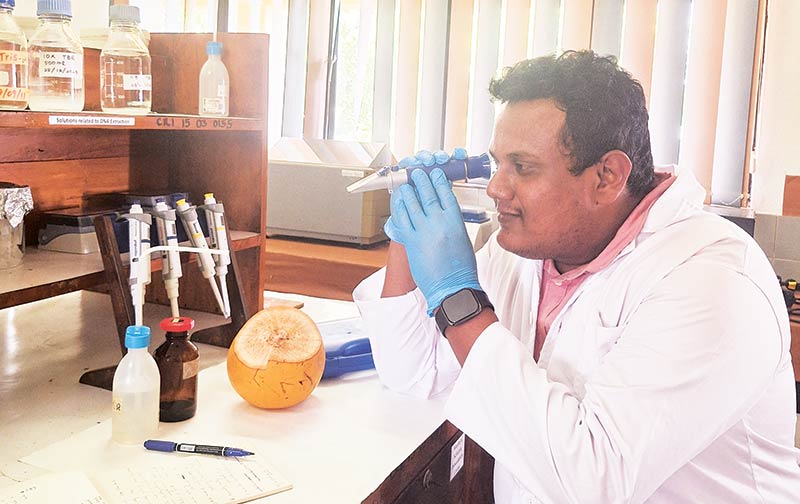
Characterized by its golden exterior, Sri Lankan King coconut or thambili is endemic to the island. In a bid to tap a premium global niche market for this golden nut which traditionally equaled the modern-day saline, the Coconut Research Institute has embarked on ambitious research which is promised to be a ticket in obtaining Geographical Indication (GI) Certification for the much-loved thirst quencher.
BY RANDIMA ATTYGALLE
Traditionally in Sri Lanka, a guest is welcomed with a tall glass of refreshing thambili water. A popular pre-lunch drink, thambili translating to ‘king coconut’ befits this golden-hued nut endemic to Sri Lanka. Thambili is an integral part of many Lankan lives. From being an organic thirst-quencher to a notable base of ayurvedic medicines, this king of nuts even occupies the pride of place in religious and cultural landscape of the island.
Bunches of thambili are often used for decorative purposes at traditional cultural festivals. Naturally sterile, thambili water had been a trusted antidote of native physicians since time immemorial. A traditional substitute for modern day life-saving saline, a bottle of thambili water or even a bunch of thambili was often taken by locals when visiting a recovering patient. Its jelly-like kernel commonly called londha is another edible delight.
Endemic variety
“In many coconut-growing countries, there are primarily two types of coconut palms: Tall and dwarf. Only a few countries have recorded intermediate types, and Sri Lanka has one such variety called Aurantiaca, which means orange coloured in Latin. Within this variety, there are four types of coconut, including king coconut – Nawasi Thambili, Rathran Thambili, and Bothal Thambili. King Coconut is considered endemic to Sri Lanka. Although populations with a similar appearance have been recorded in other countries, they belong to the red dwarf variety. Only Sri Lanka has a well-distributed population of king coconut,” says Dr. Auchithya Dissanyaka, Head of the Genetics Implant Division of the Coconut Research Institute of Sri Lanka (CRI).
GI for a premium price
In a backdrop where the demand for thambili or Sri Lankan king coconut in the international market is on the rise, the CRI is now in the process of differentiating the other dwarf varieties from the Sri Lankan king coconut. The effort is perceived to be a gateway in obtaining the Geographical Indication (GI) certification for our thambili.
GI is an international labeling system that identifies a product originating from a specific geographical area. It recognizes qualities, characteristics, or the product’s reputation that are importantly linked or attributable to its location. GI-certified products which have the international protection are also at an advantage of fetching a premium price over non-GI competitos. Sri Lanka obtained its first-ever GI certification in 2022 for ‘Ceylon Cinnamon’ from the European Union.
Booming beverage industry
Our king coconut is mainly exported as whole nuts and bottled/canned coconut water. From only 2.96 million nuts in 2014, local king coconut exports have risen to 12.91 million nuts as of 2023. The natural beverage industry is also booming in the international market, creating a high potential for the coconut water industry to become a high-value export industry. In 2022, the coconut water market was worth USD 5.2 billion, and it is estimated to increase to USD 20.24 billion by 2030 (zionmarketresearch.com).
“While other coconut water exporting countries use water from either tall or dwarf varieties, Sri Lanka has a unique opportunity to compete in the international market with its indigenous king coconut variety which is of intermediate type. Brazilian Green Dwarfs and Aromatic Green Dwarfs from Thailand are two main coconut varieties in the beverage coconut industry. To successfully compete in the international market, it is crucial to distinguish king coconut from other varieties in the global market,” remarks Dr. Dissanayaka.
The scientists at the CRI are presently conducting molecular and biochemical studies for this purpose, she says. They are also in the process of collecting king coconut germplasm to establish a gene bank to conserve the genetic material of king coconut. “We are selecting best mother palms across the country to go for island-wide characterization and we are almost nearing completion. Following that, we are moving into specific characterization which will differentiate our king coconut from other varieties,” explains the scientist. The project is supported by connected institutions of the CRI including the Coconut Development Board and the Coconut Cultivation Board.
Ongoing research
In addition to the Morphological and Molecular diversity related researches on germplasm conservation which will generate information required to obtain GI, CRI’s king coconut research branches out to several other areas. “We are also carrying out nursery experiments to enhance effective seedling production, floral biology related researches to enhance the breeding programmes and mother palm collection to produce seedlings with good genetic potential,” explains Research Officer, Genetics and Plant Breeding Division of the CRI, Oshan Thilakarathne.
Sri Lankan king coconut is still largely confined to home gardens although several plantation companies have now come forward to expand the cultivation to plantation level. “The fact that our nuts are largely sourced from home gardens also render it to be fully organic – a factor which enables us to maintain a niche in the international market,” says Thilakarathne who goes onto cite its health properties. “It is a natural beverage high in minerals and is ideal as a sports drink today. In Ayurveda, king coconut water is used to treat renal and urinary tract related diseases.” King coconut water is also considered a dietary antioxidant.
Growing export market
Sri Lanka’s king coconut export market is growing and the possible GI Certification could take it to the next level, says CRI’s Senior Research Officer Nilmini Jayalath. “Ever since we started exporting from around 2010, our king coconut export volume has grown bigger and last year we exported 12.9 million nuts. Our leading buyers are the Middle Eastern countries, Singapore, Maldives, Japan, France, Switzerland, and Germany.” Although king coconut water is exported in value added forms such as in sachets, bottles and in cubes, the demand for ours as whole nuts is much bigger because in the international market, the demand for the natural form is intense,” says the Senior Research Officer.
The scarcity of nuts is one of the major challenges to reach the full potential of our king coconut exports remarks Jayalath. “Local consumption alone demands increased volumes and during the last dry season the nut price went up to Rs 200-250 in the local market. Therefore, to increase the availability of nuts, the Coconut Cultivation Board has initiated many schemes including king coconut villages,” notes the scientist.
Harnessing new technology
In addition to the king coconut characterization studies, the comprehensive research programme on king coconut includes the development of tissue culture technology, and strategies to mitigate the seasonality of production. “By addressing these aspects, CRI aims to not only boost yields but also ensure that the industry can meet growing consumer demand year-round,” says Dr. Nayanie Aratchige, Acting Director of the CRI.
The CRI has developed technology to increase the shelf life of young king coconuts, aiming at enhancing the export potential. The new technology developed by the CRI encompasses the largely untapped potential of king coconut trade due to challenges in preservation and transportation, offering solutions that enhance the shelf life and quality of nuts. “Preserving the freshness and nutritional value of king coconut during transit enables tapping distant markets without compromising quality. Producers and exporters can access further information and learn about our trainings by calling the CRI on the short code 1928,” Dr. Aratchige concludes.
(Pic credit- Coconut Research Institute, Wikipedia)
Life style
Salman Faiz leads with vision and legacy

Salman Faiz has turned his family legacy into a modern sensory empire. Educated in London, he returned to Sri Lanka with a global perspective and a refined vision, transforming the family legacy into a modern sensory powerhouse blending flavours,colours and fragrances to craft immersive sensory experiences from elegant fine fragrances to natural essential oils and offering brand offerings in Sri Lanka. Growing up in a world perfumed with possibility, Aromatic Laboratories (Pvt) Limited founded by his father he has immersed himself from an early age in the delicate alchemy of fragrances, flavours and essential oils.
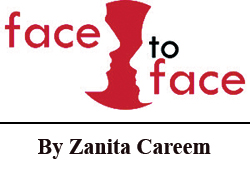 Salman Faiz did not step into Aromatic Laboratories Pvt Limited, he stepped into a world already alive with fragrance, precision and quiet ambition. Long before he became the Chairman of this large enterprise, founded by his father M. A. Faiz and uncle M.R. Mansoor his inheritance was being shaped in laboratories perfumed with possibility and in conversations that stretched from Colombo to outside the shores of Sri Lanka, where his father forged early international ties, with the world of fine fragrance.
Salman Faiz did not step into Aromatic Laboratories Pvt Limited, he stepped into a world already alive with fragrance, precision and quiet ambition. Long before he became the Chairman of this large enterprise, founded by his father M. A. Faiz and uncle M.R. Mansoor his inheritance was being shaped in laboratories perfumed with possibility and in conversations that stretched from Colombo to outside the shores of Sri Lanka, where his father forged early international ties, with the world of fine fragrance.
Growing up amidst raw materials sourced from the world’s most respected fragrance houses, Salman Faiz absorbed the discipline of formulation and the poetry of aroma almost by instinct. When Salman stepped into the role of Chairman, he expanded the company’s scope from a trusted supplier into a fully integrated sensory solution provider. The scope of operations included manufacturing of flavours, fragrances, food colours and ingredients, essential oils and bespoke formulations including cosmetic ingredients. They are also leading supplier of premium fragrances for the cosmetic,personal care and wellness sectors Soon the business boomed, and the company strengthened its international sourcing, introduced contemporary product lines and extended its footprint beyond Sri Lanka’s borders.
Today, Aromatic Laboratories stands as a rare example of a second generation. Sri Lankan enterprise that has retained its soul while embracing scale and sophistication. Under Salman Faiz’s leadership, the company continues to honour his father’s founding philosophy that every scent and flavour carries a memory, or story,and a human touch. He imbibed his father’s policy that success was measured not by profit alone but the care taken in creation, the relationships matured with suppliers and the trust earned by clients.
“We are one of the leading companies manufacturing fragrances, dealing with imports,exports in Sri Lanka. We customise fragrances to suit specific applications. We also source our raw materials from leading French company Roberte’t in Grasse
Following his father, for Salman even in moments of challenge, he insisted on grace over haste, quality over conveniences and long term vision over immediate reward under Salman Faiz’s stewardship the business has evolved from a trusted family enterprise into a modern sensory powerhouse.
Now the company exports globally to France, Germany, the UK, the UAE, the Maldives and collaborates with several international perfumes and introduces contemporary products that reflect both sophistication and tradition.
We are one of the leading companies. We are one of the leading companies manufacturing fine and industrial fragrance in Sri Lanka. We customise fragrances to suit specific applications said Faiz
‘We also source our raw materials from renowned companies, in Germany, France, Dubai,Germany and many others.Our connection with Robertet, a leading French parfume House in Grasse, France runs deep, my father has been working closely with the iconic French company for years, laying the foundation for the partnership, We continue even today says Faiz”
Today this business stands as a rare example of second generation Sri Lankan entrepreneurship that retains its souls while embracing scale and modernity. Every aroma, every colour and every flavour is imbued with the care, discipline, and vision passed down from father to son – a living legacy perfected under Salmon Faiz’s guidance.
By Zanita Careem
Life style
Home coming with a vision
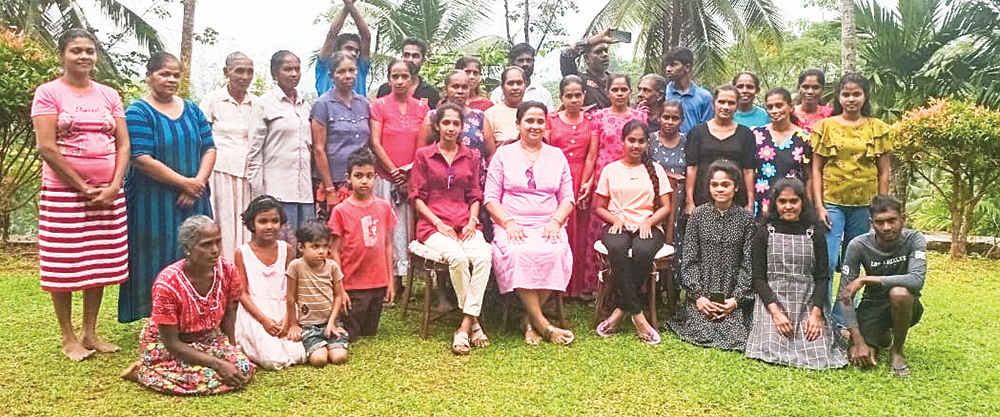
Harini and Chanaka cultivating change
When Harini and Chanaka Mallikarachchi returned to Sri Lanka after more than ten years in the United States, it wasn’t nostalgia alone that they brought home . It was purpose.Beneath the polished resumes and strong computer science backgrounds lay something far more personal- longing to reconnect with the land, and to give back to the country that shaped their memories. From that quiet but powerful decision was born Agri Vision not just an agricultural venture but a community driven movement grounded in sustainability ,empowerment and heritage. They transform agriculture through a software product developed by Avya Technologies (Pvt Limited) Combining global expertise with a deep love for their homeland, they created a pioneering platform that empowers local farmers and introduce innovative, sustainable solutions to the country’s agri sector.
After living for many years building lives and careers in theUnited States, Harini and Chanaka felt a powerful pull back to their roots. With impressive careers in the computer and IT sector, gaining global experience and expertise yet, despite their success abroad, their hearts remained tied to Sri Lanka – connection that inspired their return where they now channel their technological know-how to advance local agriculture.
For Harini and Chanaka, the visionaries behind Agri Vision are redefining sustainable agriculture in Sri Lanka. With a passion for innovation and community impact, they have built Agri Vision into a hub for advanced agri solutions, blending global expertise with local insight.
In Sri Lanka’s evolving agricultural landscape, where sustainability and authenticity are no longer optional but essential. Harini and Chanaka are shaping a vision that is both rooted and forward looking. In the heart of Lanka’s countryside, Uruwela estate Harini and Chanaka alongside the ever inspiring sister Malathi, the trio drives Agri Vision an initiative that fuses cutting edge technology with age old agricultural wisdom. At the core of their agri philosophy lies two carefully nurtured brands artisan tea and pure cinnamon, each reflecting a commitment to quality, heritage and people.
Armed with global exposure and professional backgrounds in the technology sector,they chose to channel thier experiences into agriculture, believing that true progress begins at home.
- Avya Technologies (Pvt) ltd software company that developed Agri Vision
- Chanaka,Harini and Shakya Mallikarachchi and Malathi Malathi dias (middle)
But the story of Agri Vision is as much about relationships as it is about technology. Harini with her sharp analytical mind, ensures the operations runs seamlessly Chanaka, the strategist looks outward, connecting Agri Vision to globally best practices and Malathi is their wind behind the wings, ensures every project maintains a personal community focussed ethos. They cultivate hope, opportunity and a blueprint for a future where agriculture serves both the land and the people who depend on it .
For the trio, agriculture is not merely about cultivation, it is about connection. It is about understanding the rhythm of the land, respecting generations of farming knowledge, and that growth is shared by the communities that sustain it. This belief forms the backbone of Agro’s vision, one that places communities not only on the periphery, but at the very heart of every endeavour.
Artisan tea is a celebration of craft and origin sourced from selected growing regions and produced with meticulous attention to detail, the tea embodier purity, traceability and refinement, each leaf is carefully handled to preserve character and flavour, reflecting Sri Lanka’s enduring legacy as a world class tea origin while appealing to a new generation of conscious consumers complementing this is pure Cinnamon, a tribute to authentic Ceylon, Cinnamon. In a market saturated with substitutes, Agri vision’s commitment to genuine sourcing and ethical processing stands firm.
By working closely with cinnamon growers and adhering to traditional harvesting methods, the brands safeguards both quality and cultural heritage.
What truly distinguishes Harini and Chanake’s Agri Vision is their community approach. By building long term partnerships with smallholders. Farmers, the company ensures fair practises, skill development and sustainable livelihoods, These relationships foster trust and resilience, creating an ecosystem where farmers are valued stakeholders in the journey, not just suppliers.
Agri vision integrates sustainable practices and global quality standards without compromising authenticity. This harmony allows Artisan Tea and Pure Cinnamon to resonate beyond borders, carrying with them stories of land, people and purpose.
As the brands continue to grow Harini and Chanaka remain anchored in their founding belief that success of agriculture is by the strength of the communities nurtured along the way. In every leaf of tea and every quill of cinnamon lies a simple yet powerful vision – Agriculture with communities at heart.
By Zanita Careem
Life style
Marriot new GM Suranga
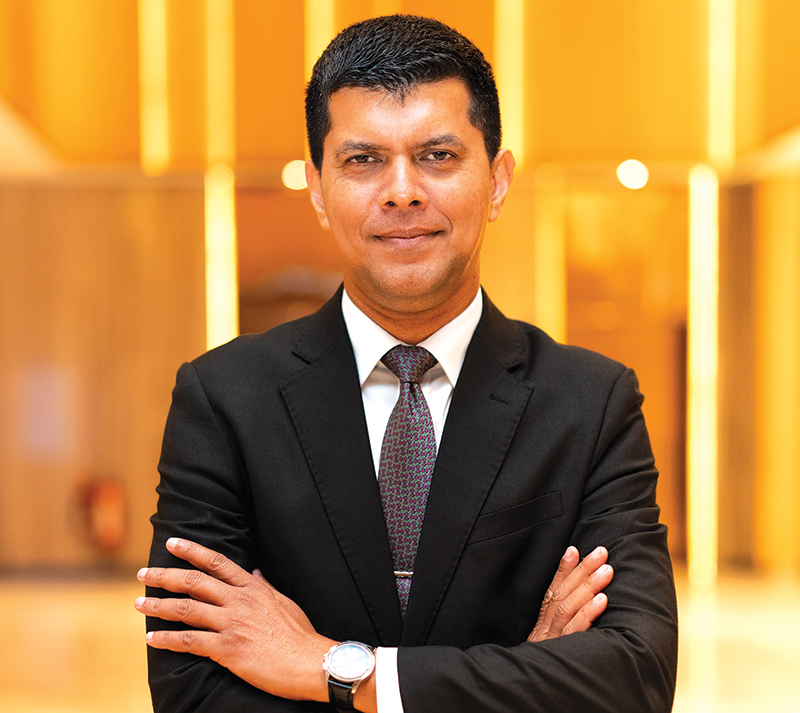
Courtyard by Marriott Colombo has welcomed Suranga Peelikumbura as its new General Manager, ushering in a chapter defined by vision, warmth, and global sophistication.
Suranga’s story is one of both breadth and depth. Over two decades, he has carried the Marriott spirit across continents, from the shimmering luxury of The Ritz-Carlton in Doha to the refined hospitality of Ireland, and most recently to the helm of Resplendent Ceylon as Vice President of Operations. His journey reflects not only international mastery but also a devotion to Sri Lanka’s own hospitality narrative.
What distinguishes Suranga is not simply his credentials but the philosophy that guides him. “Relationships come first, whether with our associates, guests, partners, or vendors. Business may follow, but it is the strength of these connections that defines us.” It is this belief, rooted in both global perspective and local heart, that now shapes his leadership at Courtyard Colombo.
At a recent gathering of corporate leaders, travel partners, and media friends, Suranga paid tribute to outgoing General Manager Elton Hurtis, hon oring his vision and the opportunities he created for associates to flourish across the Marriott world. With deep respect for that legacy, Suranga now steps forward to elevate guest experiences, strengthen community ties, and continue the tradition of excellence that defines Courtyard Colombo.
From his beginnings at The Lanka Oberoi and Cinnamon Grand Colombo to his leadership roles at Weligama Bay Marriott and Resplendent Ceylon, Suranga’s career is a testament to both resilience and refinement. His return to Marriott is not merely a professional milestone, it is a homecoming.
-

 Life style2 days ago
Life style2 days agoMarriot new GM Suranga
-

 Business1 day ago
Business1 day agoMinistry of Brands to launch Sri Lanka’s first off-price retail destination
-

 Features2 days ago
Features2 days agoMonks’ march, in America and Sri Lanka
-

 Midweek Review6 days ago
Midweek Review6 days agoA question of national pride
-

 Business6 days ago
Business6 days agoAutodoc 360 relocates to reinforce commitment to premium auto care
-

 Opinion5 days ago
Opinion5 days agoWill computers ever be intelligent?
-

 Features2 days ago
Features2 days agoThe Rise of Takaichi
-

 Features2 days ago
Features2 days agoWetlands of Sri Lanka:

